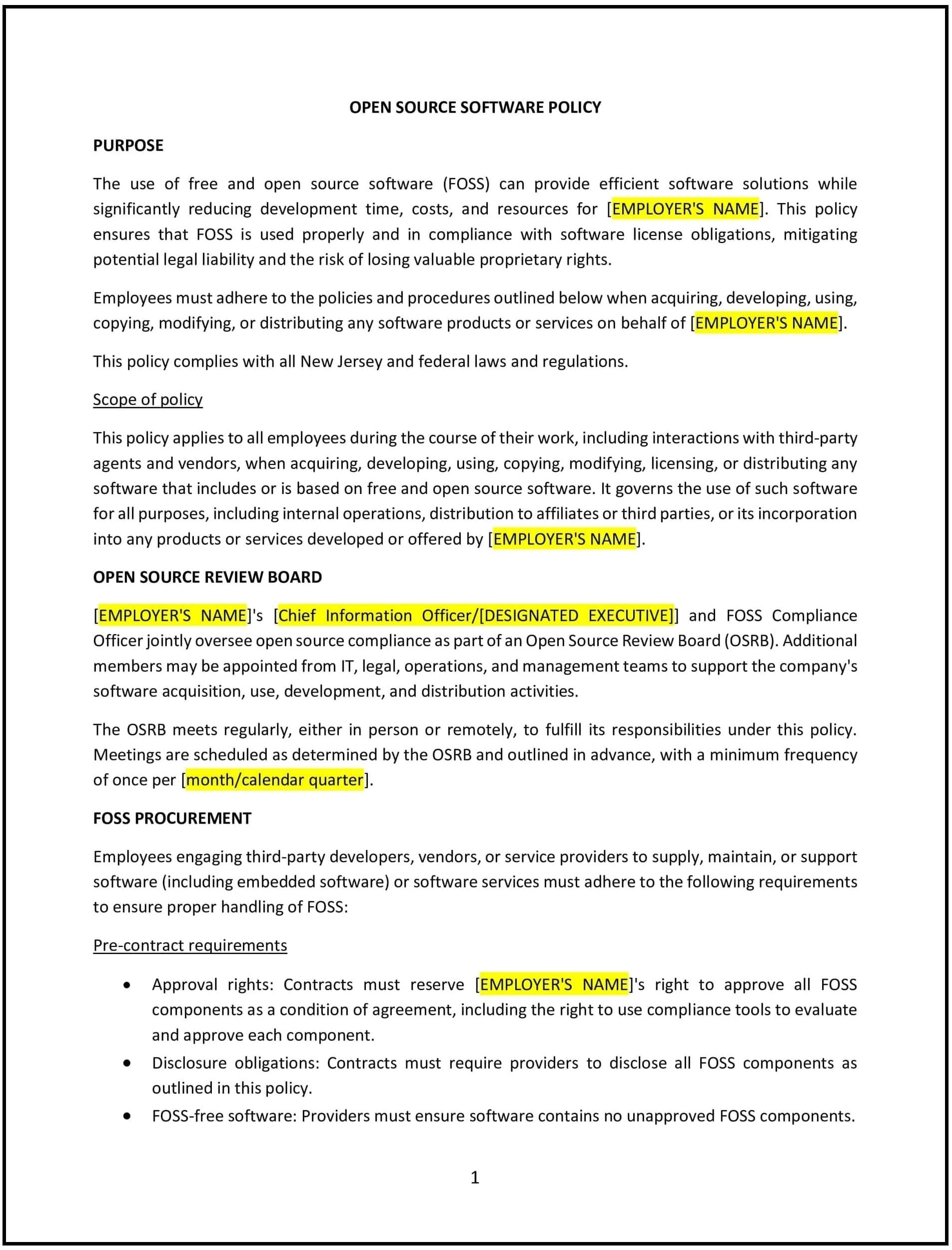Open source software policy (New Jersey): Free template
Got contracts to review? While you're here for policies, let Cobrief make contract review effortless—start your free review now.

Customize this template for free
Open source software policy (New Jersey)
An open source software policy helps New Jersey businesses regulate the use, contribution, and distribution of open source software within the company. This policy outlines guidelines for evaluating, selecting, and integrating open source software into business operations, as well as ensuring compliance with licensing terms. It also sets expectations for employees who contribute to open source projects and addresses security and intellectual property considerations.
By adopting this policy, businesses in New Jersey can leverage open source software while minimizing legal, security, and operational risks.
How to use this open source software policy (New Jersey)
- Define open source software: Specify what constitutes open source software and distinguish it from proprietary software.
- Establish evaluation criteria: Set guidelines for evaluating the security, functionality, and compliance of open source software before use.
- Outline approval procedures: Require that open source software be reviewed and approved by the IT or legal team before it is used or integrated into the business.
- Comply with licensing terms: Ensure that employees understand and adhere to the licensing agreements associated with open source software, including redistribution rights, obligations, and restrictions.
- Address contributions to open source projects: Establish guidelines for employees who wish to contribute to open source projects, including intellectual property protection and ensuring contributions are aligned with company goals.
- Ensure security practices: Require the evaluation of security risks associated with using open source software and mandate the implementation of appropriate security measures.
- Define ownership and attribution: Clarify the company’s stance on ownership and attribution for any code contributed or integrated from open source projects.
- Review and update: Regularly assess the policy to reflect changing regulations, best practices, and evolving business needs.
Benefits of using this open source software policy (New Jersey)
This policy provides several benefits for New Jersey businesses:
- Reduces legal risks: Helps businesses comply with open source licenses and avoid intellectual property disputes.
- Improves software quality: Encourages the use of reliable and well-maintained open source solutions.
- Supports innovation: Allows businesses to contribute to and benefit from the open source community.
- Enhances security: Ensures that open source software is thoroughly vetted for security vulnerabilities before use.
- Promotes transparency: Establishes clear guidelines for employees contributing to open source projects or using open source software in their work.
Tips for using this open source software policy (New Jersey)
- Communicate the policy clearly: Ensure employees understand the company’s stance on using and contributing to open source software.
- Train employees on open source licenses: Provide training on how to read and comply with open source licenses and the risks of non-compliance.
- Vet open source software thoroughly: Conduct security and functionality assessments before integrating open source software into business operations.
- Encourage contributions with guidelines: Support employees who contribute to open source projects, ensuring they do so in line with company policies and IP protection.
- Review the policy regularly: Update the policy to reflect changes in open source licensing, security practices, and business needs.